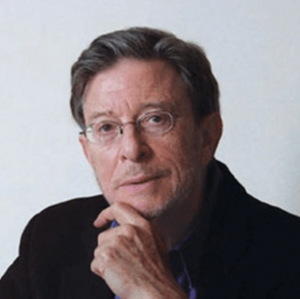Stephen F. Cohen facts for kids
Quick facts for kids
Stephen F. Cohen
|
|
|---|---|
 |
|
| Born | Stephen Frand Cohen November 25, 1938 Indianapolis, Indiana, U.S. |
| Died | September 18, 2020 (aged 81) New York City, U.S. |
| Occupation | Author, scholar of Russian studies |
| Language | English |
| Nationality | American |
| Alma mater | Indiana University (B.S. 1960, M.A. 1962), Columbia University (Ph.D. 1969) |
| Spouse | Lynn Blair (divorced) Katrina vanden Heuvel (m. 1988) |
| Children | 1 son, 2 daughters |
Stephen Frand Cohen (born November 25, 1938 – died September 18, 2020) was an American expert on Russian studies. He spent his career studying modern Russian history. His work focused on Russia since the Bolshevik Revolution. He also studied Russia's relationship with the United States.
Cohen was a writer for The Nation magazine. His wife, Katrina vanden Heuvel, owned part of the magazine. He also helped start the American Committee for East–West Accord in 2015.
Contents
Early Life and Education
Stephen Cohen was born in Indianapolis, Indiana. He grew up in Owensboro, Kentucky. His family owned a jewelry store and a golf course. His grandfather came to the United States from Lithuania. At that time, Lithuania was part of the Russian Empire.
Cohen went to the Pine Crest School in Florida. He then studied at Indiana University Bloomington. He earned a Bachelor of Science (B.S.) degree in economics in 1960. He also got a Master of Arts (M.A.) degree in government and Russian studies in 1962.
During college, he visited the Soviet Union for four weeks. This trip made him very interested in its history and politics.
After college, he earned his Doctor of Philosophy (Ph.D.) degree. This was in government and Russian studies from Columbia University in 1968. Later that year, he became a professor at Princeton University. He taught there until 1998.
He then taught at New York University until 2011. He became a professor emeritus (retired professor) of Russian and Slavic Studies.
Writings and Views
Stephen Cohen wrote many books and articles about Russia. He often shared his views on its history and politics.
Views on the Soviet Era
Cohen's first book was about Nikolai Bukharin. Bukharin was an important leader in the Communist Party of the Soviet Union. Cohen believed that the Soviet Union could have developed differently. He thought it didn't have to lead to Joseph Stalin's harsh rule.
He suggested that Bukharin could have led the Soviet Union after Lenin. Cohen thought this would have brought more openness and freedom. Many people praised his book.
During the Cold War, Cohen criticized both the US and the Soviet government. The Soviet government even banned him from visiting for a few years.
He supported Mikhail Gorbachev's reforms, called perestroika. With his wife, he wrote a book about these changes. He believed Gorbachev's efforts were important for Russia.
Cohen also thought the US continued the Cold War after the Soviet Union broke up. He felt the US saw itself as the "winner" and Russia as the "loser." He believed this led to problems in their relationship.
Views on the Putin Era
Cohen wrote that news coverage of Russian President Vladimir Putin was unfair. He said the media often made Putin seem like a bad leader. Cohen believed Putin was not "anti-American." He thought Putin could be a good partner for the US.
He argued that the US had started a "new Cold War" against Russia. He felt many US leaders were not speaking out against this. His views were sometimes criticized as being too supportive of Putin.
In 2015, Cohen took part in a debate in Canada. He argued that Western countries should work with Russia, not ignore it.
He also questioned if US intelligence services sometimes worked against presidents. He suggested they might have stopped efforts to cooperate with Russia.
Views on the Ukraine Crisis
In 2014, Cohen said the crisis in Ukraine was partly due to US actions. He believed the US had expanded NATO too close to Russia's borders. He said this went against promises made to Gorbachev.
When Russia took over Crimea, Cohen said any Russian leader would have reacted strongly. He also questioned if Russia had invaded Crimea. He noted that Russian troops were already allowed there at a naval base.
Cohen criticized the US for supporting the removal of Ukraine's President Viktor Yanukovych. He also spoke about violence in the Donbas region of Ukraine. He said Putin showed "remarkable restraint" by not sending troops there.
He also doubted that Russia shot down Malaysia Airlines Flight 17. He suggested Ukraine might have been responsible. However, later investigations showed the missile came from a Russian military unit.
Cohen believed the conflict in Ukraine was a civil war. He said one part of Ukraine leaned towards Russia, and another part leaned towards the West.
His views on Ukraine were often called "pro-Putin." Cohen said these labels were unfair. He accused US media of biased reporting on Russia.
Other Activities
In 2015, a fellowship was proposed in Cohen's name. This caused some debate among scholars. However, the Association for Slavic, East European, and Eurasian Studies later approved the "Cohen–Tucker Fellowship."
Also in 2015, Cohen helped restart the American Committee for East–West Accord. This group supports friendly relations between the US and Russia. He was a member of its board of directors. He also appeared often on RT, a Russian TV channel.
Personal Life
Stephen Cohen had a son and a daughter from his first marriage. He married opera singer Lynn Blair in 1962, but they later divorced. In 1988, he married Katrina vanden Heuvel, a journalist. They had a daughter together.
Stephen Cohen passed away on September 18, 2020. He was 81 years old and died from lung cancer.

